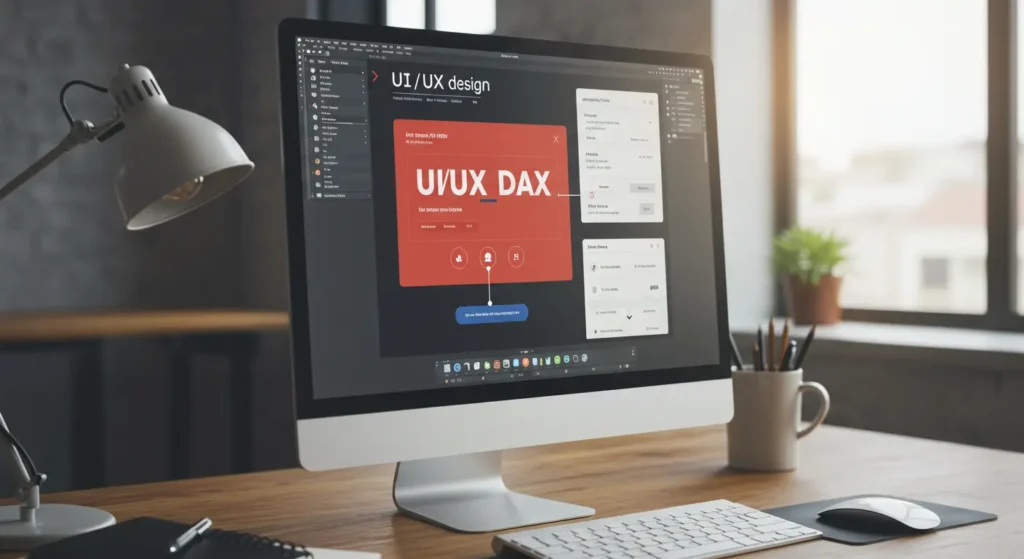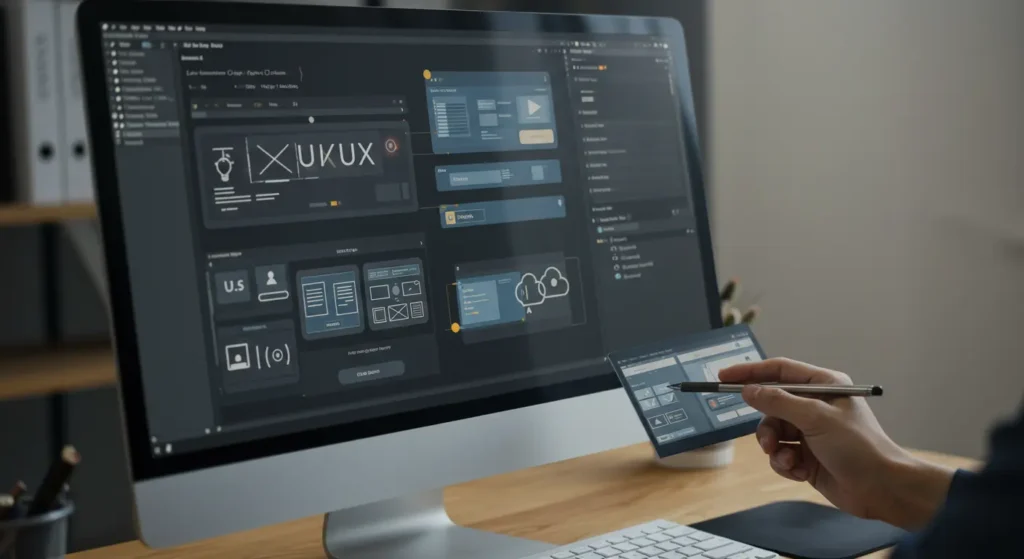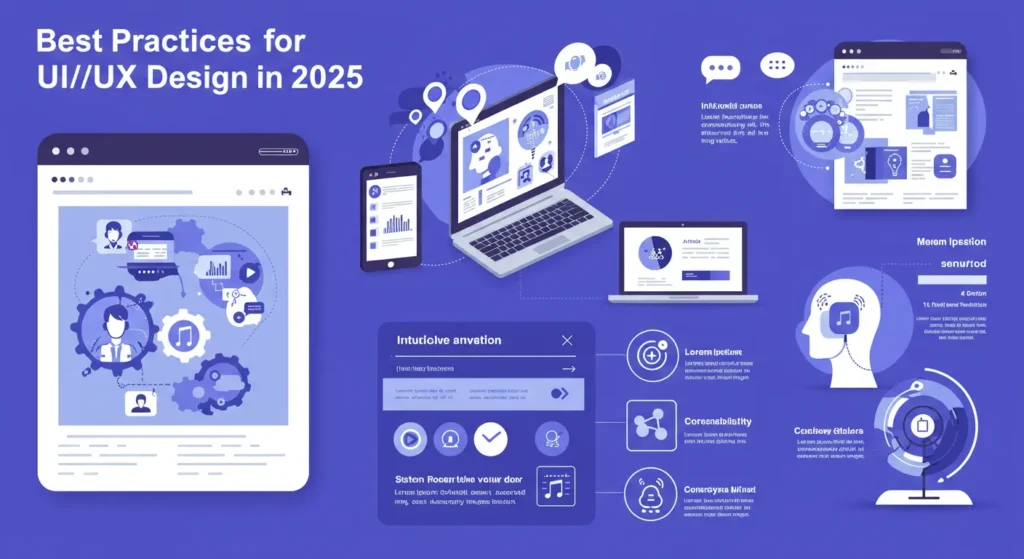The world of UI/UX (User Interface & User Experience) design evolves rapidly every year with technological advancement and rising user expectations. In 2025, competition is fiercer than ever as companies aim to deliver outstanding digital experiences that blend simplicity, appeal, and artificial intelligence.
In this article, we’ll cover the top UI/UX design trends for 2025 and how designers and business owners can leverage them to craft innovative, effective experiences.

What is UI/UX in Brief?
- UI (User Interface): Focuses on the visual layer of an app or website—colors, icons, buttons, and layout.
- UX (User Experience): Focuses on how users interact with the product and how smooth and satisfying their journey is.
Combining UI and UX is what creates a successful experience that keeps users satisfied and increases their loyalty.

New Trends in UI/UX (2025)
1. Integrating AI into Design
Artificial intelligence has become a core part of design toolkits, helping designers to:
- Generate smart layouts and color suggestions.
- Create dynamic texts and images that adapt to user behavior.
- Deliver personalized experiences based on user data analysis.
Example: E-commerce apps that automatically showcase products aligned with each user’s interests.
2. Voice Design and Touchless Experiences
With the rise of voice assistants like Alexa and Siri, it’s increasingly important to integrate voice user interfaces (VUI) into apps and websites.
In 2025, the focus is on enabling users to interact with products without touching the screen, which is ideal for:
- Smart home devices.
- Connected cars.
- Accessibility-focused applications.
3. Micro-interactions
These are the small, delightful responses and animations triggered by actions like tapping a button or swiping a screen.
In 2025, they’re more dynamic and intelligent, adding joy to the experience and boosting engagement.
4. Futuristic Gradients and Neon
Visual design in 2025 is trending toward:
- Bold colors paired with glowing gradients.
- Using dark mode as a standard.
- Blending futuristic neon to highlight interactive elements.
5. Gesture-Based UI
Touch is no longer enough. Gestures such as:
- Air swipes.
- Hand gestures in front of the camera.
- Eye tracking.
…are becoming essential parts of interactive interface design.
6. Personalization
In 2025, experiences are fully personal; users expect everything to be tailored to them. Examples include:
- Dynamic dashboards.
- Recommendations based on past behavior.
- Timely, personalized messages.
7. AR/VR Integration
2025 saw major advances in the metaverse and extended reality (XR), pushing designers to focus on:
- Virtual stores.
- 3D meeting rooms.
- Immersive entertainment apps.
Table: UI/UX in 2020 vs. 2025
| Aspect | 2020 | 2025 |
|---|---|---|
| Artificial Intelligence | Limited to analytics | Core to personalization and design |
| Interactions | Touch only | Touch + Voice + Gestures |
| Color | Flat and simple | Bold with gradients and neon |
| Augmented Reality | Limited experiences | Widespread in everyday apps |
| User Personalization | Basic in some apps | Comprehensive and intelligent across experiences |

Best Practices for UI/UX in 2025
- Use AI wisely to deliver dynamic content.
- Simplify the experience; users value clarity and speed.
- Provide accessibility options for everyone.
- Adopt voice experiences alongside touch.
- Continuously test your interface using real user data.
Table: Essential UI/UX Tools in 2025
| Tool | Primary Use | Key Advantage |
|---|---|---|
| Figma AI | Collaborative, AI-assisted design | Smart layout suggestions |
| Adobe XD 2025 | Interface & experience design with XR | Easy AR/VR integration |
| Framer AI | AI-powered website and app creation | Fast building with high flexibility |
| Uizard | Turn ideas and sketches into ready UIs | Great for beginners and pros |
| Maze | AI-driven user testing | Rapid behavior analysis |
Conclusion
In 2025, UI/UX design is no longer just about aesthetics; it has become an integrated discipline that blends
technology, artificial intelligence, and behavioral psychology.
The focus has shifted from merely making an app or website “look good” to making it useful, fast, and personal for every user.
Those who adopt these new trends early will have a greater chance of success in an intensely competitive digital market.
 العربية
العربية
